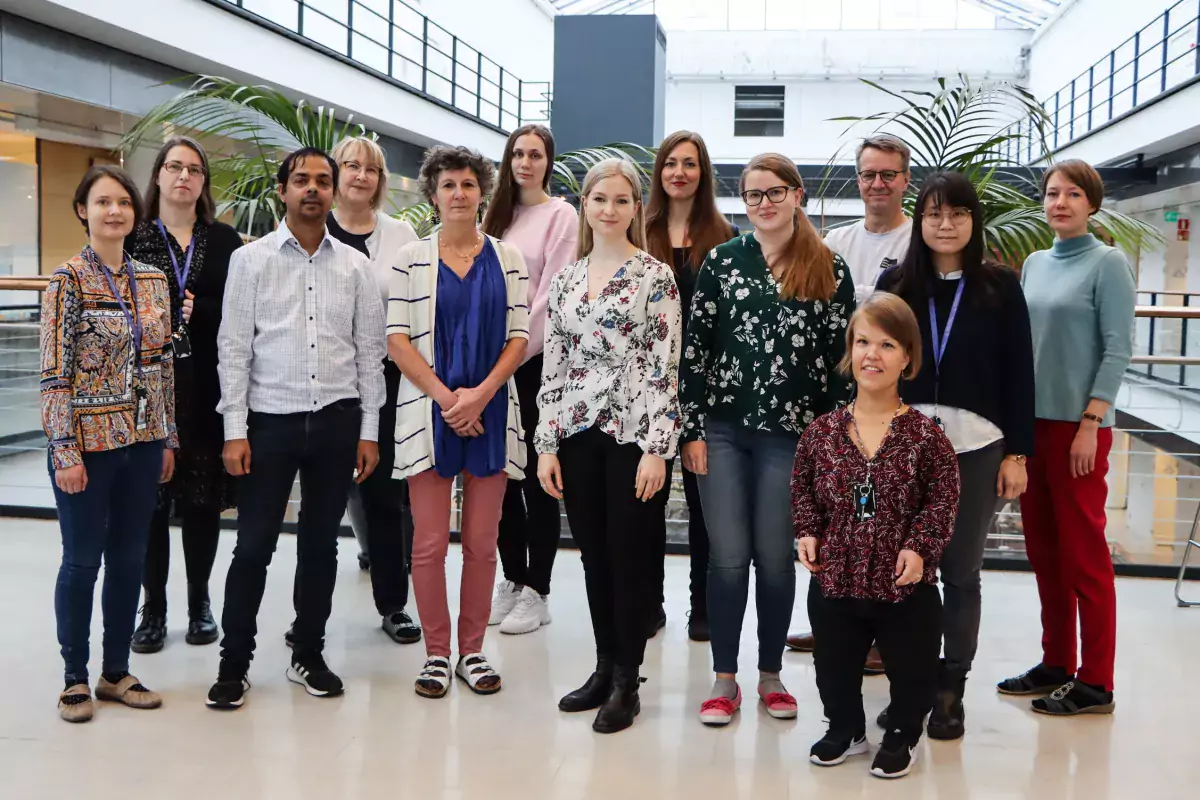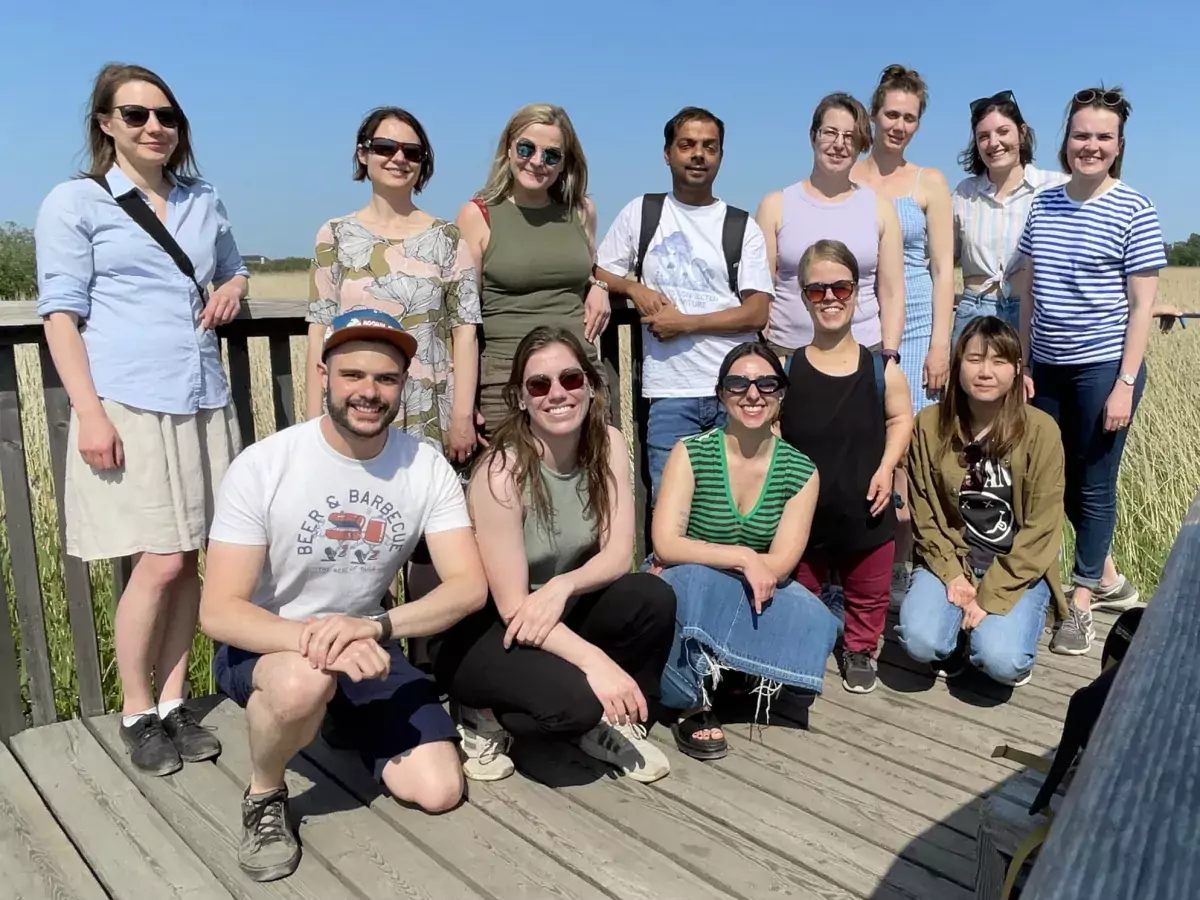People
Jari Koistinaho, MD, PhD, is the Director of the Neuroscience Center, HiLIFE and Professor of Regenerative Medicine at the University of Eastern Finland. He is also a founder of three spin-off companies (Cerebricon Ltd acquired by Charles River Discovery Research Services 2009; Medeia Therapeutics Ltd 2006, Aranda Pharma Ltd 2015) and he serves as a scientific/strategic advisor for several biopharma companies and Life Sciences of the University of Oslo. He was awarded a Saatamoinen professorship in Stem Cell Research in 2012 at the University of Eastern Finland and was appointed to a professorship in neuropharmacology in faculty of Pharmacy at the University of Helsinki in 2019.
Šárka Lehtonen received her PhD from the Department of Pharmacology and Toxicology at the University of Kuopio, Finland, under the supervision of Prof. Pekka T. Männistö in 2005. Immediately after, she completed two postdoctoral fellowships: first, at the University of Helsinki under the supervision of Prof. Eero Mervaala from 2005 to early 2007, and the second at A.I.Virtanen Institute for Molecular Sciences, University of Eastern Finland, Kuopio, in Molecular Brain Research Group led by Prof. Jari Koistinaho from 2008 to 2011. During 2012-2013, Šárka visited the lab of Prof. Petr Dvořák at the Masaryk University, Brno, to develop the differentiation method for derivation of dopaminergic neurons from human-induced pluripotent stem cells (hiPSC). Šárka has expertise in stem cell technology and derived more than 300 hiPSCs lines during the last 10 years, including lines from Parkinson´s and Alzheimer`s patients and other neurological disorders. Currently, Šárka leads the Human brain disease modelling group at the University of Eastern Finland. Her group regularly uses all cell brain types derived from hiPSC to build up relevant human-based models to understand disease development of neurological diseases.
Taisia earned her PhD from the University of Eastern Finland (UEF) in 2015 for the project studying the role of nuclear factor kappa B in mouse models of neuroinflammation. In 2016-2018, Taisia studied the regulatory role of neuronal adhesion molecule ICAM5 in microglial functions in the laboratory of Dr Carl Gahmberg, University of Helsinki. Taisia joined the current Koistinaho group in Helsinki in April 2018. She uses human iPSC-derived brain cells, especially microglia and astrocytes, for modelling Alzheimer’s disease in vitro and in vivo by transplanting human cells into mouse brain. Currently, Taisia also acts as the Coordinator of the Neural iPSC core facility (NiPS).
Meike achieved her Master’s degree in Clinical and Medical Neuroscience at the University of Cologne, Germany. In 2014, she started as a PhD student in the laboratory for “Molecular Brain Research” at the A.I. Virtanen Institute, University of Eastern Finland, Kuopio. After a 6-months internship in the research group “ Cerebrovascular Research” of Anna M Planas at the IibB, Barcelona, Spain, Meike continued her work in 2019 in our research group “Biological Modelling of Human Brain and Mind in Disease” at the Neuroscience Center, HiLIFE, University of Helsinki. Here, she finished her PhD studies on “Developing and testing novel treatment strategies in mouse models of cerebrovascular accidents.”. Since 2021, Meike works as a post-doctoral researcher on engineering vascularized cortical organoids from human induced-pluripotent stem cells (hiPSCs) and human umbilical vein endothelial cells (HUVECs). Furthermore, she is working on 3D-bioprinting of human brain tissue constructs.
Tristen received his PhD in 2022 from the Department of Molecular and Cellular Biology at the University of Guelph, Canada under the supervision of Dr. Jasmin Lalonde. His PhD focused on the role of store-operated calcium entry on neuronal progenitor maturation in patient-derived stem cell models of bipolar disorder. In the same year, he began his first postdoctoral research position in the Koistinaho lab. Here, he studies the role of microglial and maternal immune activation on neuronal function and the development of schizophrenia in patient-derived stem cell models in vitro and in vivo. Tristen is also an active member of the PhD and Postdoc Student Association and the HiLIFE Postdoc Association.
Aderemi is interested in the “cellular phase” of neurodegenerative diseases, with the aim of characterizing the pre-degenerative events involving the interactions of neural cells, using induced pluripotent stem cell-derived neurons, microglia, astroglia, and oligodendrocytes as models. Other relevant models include both vertebrate models such as transgenic mice and rats, and invertebrate models such as Drosophila. Aderemi holds a PhD in Molecular Pharmacology and Neurobiology from the Yokohama City University Graduate School of Medicine (Japan), funded by the MEXT scholarship. For his PhD, Aderemi investigated early-stage proteome changes in Alzheimer's disease (AD). Previously, he was a lecturer in the College of Health Sciences at Osun State University (Nigeria) where he lectured Pharmacology and Physiology courses to students of medicine and medical sciences. Currently, as a Marie-Sklodowska Curie Fellow in the Koistinaho lab at the University of Helsinki (Finland), Aderemi is investigating the role of the ubiquitin proteasome system and its relationship with the autophagy-lysosomal degradation pathway in the pathogenesis of AD.
Marja graduated as a Master of Science in Biosciences in University of Eastern Finland and joined Koistinaho group in 2014 to pursue PhD when the group was located in A.I. Virtanen Institute, University of Eastern Finland. She has been involved in schizophrenia and psychopathy projects. In 2019 Marja followed the group to Neuroscience center in University of Helsinki to finalize her dissertation and defended her thesis in February 2022. After around a year post doc period in Dr. Carl Sellgren’s lab in Karolinska Institutet, in Stockholm Sweden she joined the Koistinaho group again in July 2023. She has gained experience in different iPSC-derived cell models and continues research focusing on interneurons and crosstalk between different cell types.
Ying-Chieh has worked on neuronal development and received her Master in Neuroscience from National Yang-Ming University, Taiwan. After that, she worked as an associate scientist for several years in the pharmaceutical industry. She joined the group as a doctoral student in the Brain & Mind program at the University of Helsinki at the beginning of 2020. She is now focusing the work on understanding how vascular dysfunction, particularly pericytes contributes to Alzheimer’s disease onset and progression.
Noora is working as a PhD student in collaboration between Koistinaho and Pietiläinen labs. In her project, Noora investigates interactions between human iPSC-derived neurons and astrocytes from patients with schizophrenia using single-cell RNA sequencing and microelectrode array recordings. Noora has graduated from Tampere University in 2019 and has been working with the PhD project in University of Helsinki since 2020.
Marianna has graduated as a Master of Science in Bioscience from the University of Eastern Finland (UEF). In 2019-2020, she was working on a project studying the unconventional secretion of tau protein in the research group of Henri Huttunen and Riikka-Liisa Uronen, University of Helsinki. In December 2020, she joined Koistinaho group to continue her PhD. Her current PhD project aims to understand the regulatory role of Alzheimer’s disease-associated genes ABI3 and PLCG2 in iPSC-derived microglia in vitro and in vivo. The project is done in collaboration with Dr Mikko Hiltunen, UEF.
Shringaa graduated from her Master's in Neuroscience degree from the University of Helsinki in 2024. She started working as an intern in Jari Koistinaho's group in 2023 during her master's and gained experience in human cell models in schizophrenia and sexual orientation. She was also an Erasmus trainee in Professor Miia Kivipelto's Nordic Brain Network at Karolinska Institutet, Sweden, during her master's, where she focused on lifestyle intervention mechanisms in Alzheimer's disease mouse models. She started as a doctoral researcher in the Koistinaho group in July 2024 and she now focuses on Mechanisms of microglial hyperactivation in schizophrenia using stem cell models.
Isabelle graduated in 2022 with a BSc in Biotechnology from the van Hall Larenstein University of applied sciences in the Netherlands. During her bachelor's thesis that she performed at the Koistinaho lab, she was focused on microglia in Alzheimer's Disease. Now that she is a research assistant, she will help doctoral researchers and postdoctoral researchers on various projects.
Hiramani Dhungana, Doctoral researcher 2009-2014; Post-doctoral researcher 2015-2021.
Pinja Kettunen, Doctoral researcher 2020-2025

